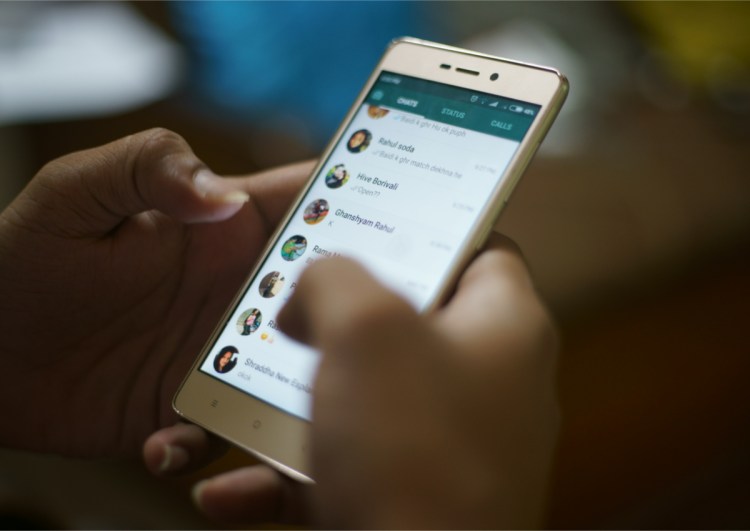WhatsApp today announced the launch of the Business API, which allows large businesses to manage and send non-promotional messages to customers — like appointment reminders, shipping info, or event tickets — for a fixed rate. A company spokesperson declined to share the price.
Some messages, like flight updates or purchase receipts, will likely be sent automatically, a company spokesperson told VentureBeat in an email. WhatsApp’s Business API is initially being made available to just 90 companies, including Uber, Booking.com, and KLM Airlines, and will gradually be offered to a larger group of customers.
Messages may only be sent to customers who have shared their phone number with a business or who have initiated a conversation with a business. Businesses using the API will be able to respond to messages within 24 hours for free. All messages sent after that will come with a charged fee.
Also announced today: Advertisers will soon be able to use the Facebook Ads Manager to add a click-to-chat button to Facebook advertisements.
June 5th: The AI Audit in NYC
Join us next week in NYC to engage with top executive leaders, delving into strategies for auditing AI models to ensure fairness, optimal performance, and ethical compliance across diverse organizations. Secure your attendance for this exclusive invite-only event.
Experiments that allow Facebook users to add a button to a post that invites people to chat on WhatsApp first began with boosted posts last December. This follows the introduction of Click-to-Messenger ads, News Feed ads that lead to Facebook Messenger conversations with automated bots or humans.
The monetization performance of WhatsApp and the wider family of Facebook apps is being closely watched, following a historic earnings announcement last week. Reported revenue of $13.2 billion fell just below analyst expectations, but news of the loss of 3 million daily active users in Europe last week combined with additional concerns around misuse of data resulted in a $120 billion loss in company value last week, the biggest in U.S. stock market history.
Facebook CEO Mark Zuckerberg and COO Sheryl Sandberg have persistently talked about plans to monetize the company’s messaging apps, but often referred to those initiatives as long-term plans.
Click-to-WhatsApp ads will be available in most countries around the world later this month, a company spokesperson told VentureBeat in an email, but will not be made available in India or the European Union.
The standalone WhatsApp Business was first made available in January. By April, CEO Mark Zuckerberg reported that WhatsApp Business had more than 3 million users. No update on the number of WhatsApp Business users was shared as part of today’s news. WhatsApp currently has 1.5 billion monthly active users.
The advancement of WhatsApp Business follows several other initiatives aimed at using automated messaging and AI to change communication between customers and businesses. Google is using RCS messaging to spread business messaging to billions of SMS users throughout the world, while Apple’s Business Chat is attempting to do the same. Salesforce’s Einstein bots for conversations in apps and on websites became generally available last month.
Ads you can speak with and the Business API are the latest in a rush of changes WhatsApp has made in recent months.
Group video calls with up to four people were launched earlier this week, a commitment first made at F8 in May.
Changes have also been made to enhance controls for group chat administrators in order to limit and label forwarded messages in an effort to curb the spread of fake news. In India, WhatsApp’s largest market, such false information has led to assaults and other crimes against religious minorities.
The flurry of changes has been largely made in the absence of WhatsApp’s cofounders. Cofounder Brian Acton left his position in September 2017, and cofounder Jan Koum announced plans to leave in May. In March, just days after we learned that Cambridge Analytica misused Facebook user data to profile U.S. voters, Acton urged people to delete their Facebook accounts.

